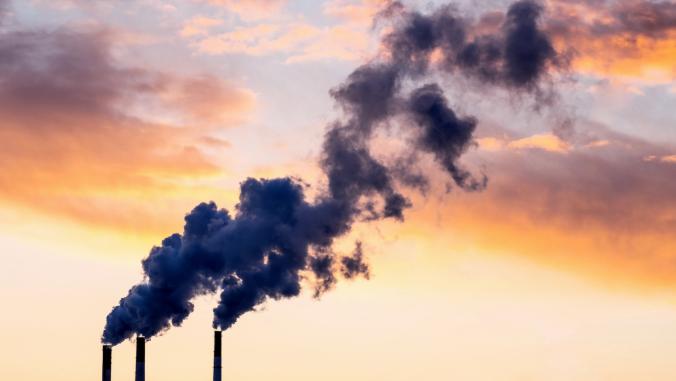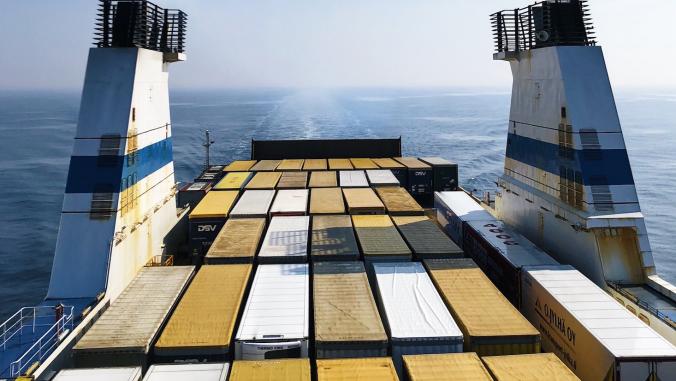BP announces net zero by 2050 ambition
New CEO at the global oil giant plans to step up its investment in non-oil and gas activities. Campaigners argue much more detail is required on how the company will pivot towards net zero emissions.

BP this week became the latest oil major to set a net zero emissions goal, announcing that it aims to deliver net zero emissions across its operations and its oil and gas production basis by 2050 or sooner.
The new targets were the centerpiece of a 10-point plan unveiled Tuesday by new CEO Bernard Looney, which also included pledges to halve the carbon intensity of the products BP sells by 2050 or sooner, install methane measurement at all of the company's major oil and gas processing sites by 2023 and reduce methane intensity of operations by 50 percent, and increase the proportion of investment into non-oil and gas businesses "over time."
In addition, the company said it intended to play a more proactive role in "helping the world get to net zero." As such, it pledged to undertake "more active advocacy for policies that support net zero"; further incentivize BP's workforce to deliver on its net zero goals; set "new expectations" for relationships with trade associations; ensure the company is recognized as a leader for transparency of reporting, including supporting the recommendations of the Taskforce for Climate-related Financial Disclosures (TCFD); and launch a new team to help countries, cities and large companies decarbonize.
Announcing the new plan, Looney, the subject of intense lobbying and protests from environmental campaigners since he took up the post in early February, said the company fundamentally would be transformed in pursuit of net zero emissions.The world's carbon budget is finite and running out fast; we need a rapid transition to net zero. ... It will require nothing short of reimagining energy as we know it.
"The world's carbon budget is finite and running out fast; we need a rapid transition to net zero," he said. "We all want energy that is reliable and affordable, but that is no longer enough. It must also be cleaner. To deliver that, trillions of dollars will need to be invested in replumbing and rewiring the world's energy system. It will require nothing short of reimagining energy as we know it.
"This will certainly be a challenge, but also a tremendous opportunity. It is clear to me, and to our stakeholders, that for BP to play our part and serve our purpose, we have to change. And we want to change — this is the right thing for the world and for BP."
His comments were echoed by Helge Lund, BP's chairman, who said the entire board was committed to driving the net zero transition. "Energy markets are changing, driven by climate change, technology and societal expectations, and the Board supports Bernard and his new leadership team's ambition for BP," Lund said. "Aiming for net zero is not only the right thing for BP, it is the right thing for our shareholders and for society more broadly."
BP's share price delivered a modest uptick on the news, providing further evidence a growing number of investors no longer are spooked at the prospect of fossil fuel decarbonization strategies.
The announcement follows a similar net zero pledge last autumn from Spanish oil giant Repsol, as well as new short-term emissions targets from Shell alongside its pledge to halve the carbon footprint of its products by mid-century.
However, the move was given short shrift by environmental campaigners, who noted that BP remains committed to increasing fossil fuel production by around a fifth through to 2030, meaning that despite the new pledges it is still a long way off from being in line with the goals of the Paris Agreement.
Critics also argued the new strategy provided scant detail and few firm targets explaining how the company intends to deliver net zero emissions.
How will they reach net zero? Will it be through offsetting? When will they stop wasting billions on drilling for new oil and gas we can't burn?
"BP's 'ambitions' and 'aims' all seem to apply to Looney's successors, and leave the urgent questions unanswered," said Charlie Kronick, oil adviser from Greenpeace UK. "How will they reach net zero? Will it be through offsetting? When will they stop wasting billions on drilling for new oil and gas we can't burn? What is the scale and schedule for the renewables investment they barely mention? And what are they going to do this decade, when the battle to protect our climate will be won or lost."
Similarly, Ellen Gibson, U.K. campaigner at divestment organization 350.org, branded BP's announcement "PR spin."
"BP is one of the companies most responsible for the climate emergency," she said. "They say they want their business model to align with the Paris Agreement, but simply put: It is not possible to keep to a 2 degree Celsius warming limit — let alone 1.5 C — while continuing to dig up and burn fossil fuels. Unless BP commits clearly to stop searching for more oil and gas, and to keep their existing reserves in the ground, we shouldn't take a word of their PR spin seriously."
BP insisted that its net zero goal for its operations and production would equate to a reduction in emissions of around 415 million metric tons of CO2 equivalent a year.
"This is what we mean by making BP net zero," Looney said. "It directly addresses all the carbon we get out of the ground as well as all the greenhouse gases we emit from our operations. These will be absolute reductions, which is what the world needs. If this were to happen to every barrel of oil and gas produced, the emissions problem for our sector would be solved. But of course, the world is not that simple; the whole energy system has to be transformed and everyone has a contribution to make — producers and sellers of energy, policy makers and everyone who uses energy."
However, he also stressed that the company would not drastically break with its current oil and gas focused operating model, insisting that it would continue to focus on generating revenues that could help fund the transition.
"BP needs to continue to perform as we transform," he said. "As committed as I am to making transformation happen, I am equally committed to some fundamental principles that have served us well. Safe and reliable operations will always underpin all we do, and we remain committed to meeting the promises we have made to our shareholders. We can only reimagine energy if we are financially strong, able to pay the dividend our owners depend on and to generate the cash to invest in new low and no-carbon businesses."
He also insisted the company would build on its recent investments in clean technology businesses such as solar developer Lightsource BP and BP Chargemaster, although the company declined to provide a specific target for its low carbon investment plans.
The goal is to invest wisely, into businesses where we can add value, develop at scale and deliver competitive returns.
"We expect to invest more in low carbon businesses — and less in oil and gas — over time," Looney said. "The goal is to invest wisely, into businesses where we can add value, develop at scale and deliver competitive returns."
In addition, the pledges to better support net zero policies and set "new expectations" for trade bodies mark an attempt to draw a line under recent accusations that the company has lobbied against U.S. climate policies and supported groups that seek to undermine emission reduction efforts.
The wide-ranging plans are also set to be backed by a major managerial reorganization, with the company enacting four business groups — Production and Operations, Customers and Products, Gas and Low Carbon Energy, and Innovation and Engineering — that will be complemented by three "integrator" divisions titled Strategy and Sustainability, Regions, Cities and Solutions, and Trading and Shipping.
The revamp is set to receive an extremely cautious welcome from environmental campaigners and green investors, who were quick to point out that BP notoriously has promised to move "Beyond Petroleum" in the past only to sell off many of its clean tech divisions and refocus on fossil fuels.
However, the announcement Tuesday forms part of a trend that has seen a clear dividing line emerge between European oil majors and many of their peers around the world.
Shell, Total and BP have all invested significant sums in a raft of clean tech companies over the past five years, while a recent report from the influential Carbon Tracker think tank analyzed the world's remaining carbon budget and concluded there were significant differences in the level of disruption oil majors face.
We need to see a wholesale shift to a net zero economy by 2050. This must include oil and gas companies if we are to have any chance of successfully tackling the climate crisis.
For example, it found that while none of the leading oil and gas companies are on track to be aligned with the Paris Agreement by 2040, Shell and BP's production levels would only need to reduce by 10 percent and 25 percent, respectively, while ConocoPhillips would face an 85 percent cut and ExxonMobil would require production cuts of 55 percent.
Responding to today's announcement, Carbon Tracker's head of oil, gas and mining, Andrew Grant, hailed the new goal as "a big step forward." "Last year BP supported a shareholder resolution to describe how its strategy is consistent with the goals of the Paris Agreement, including 'consistency of each new material capex investment,'" he said. "In our research we have pointed out the need for oil and gas producers to reduce emissions and production in absolute terms in order to fit within climate constraints, and crucially to make sure that they only invest in the lowest cost assets in order the mitigate the financial risk of them being stranded in the energy transition. BP's recognition of the finite emissions limits imposed on our planet is a big step forward. We look forward to understanding in greater detail how the company will achieve its targets."
His comments were echoed by Stephanie Pfeifer, member of the global Climate Action 100+ Steering Committee and CEO at the Institutional Investors Group on Climate Change (IIGCC), who argued investor pressure on oil majors would continue to intensify. "This is a very welcome announcement from BP's new CEO," she said. "We need to see a wholesale shift to a net zero economy by 2050. This must include oil and gas companies if we are to have any chance of successfully tackling the climate crisis. Building on the positive engagement with BP through Climate Action 100+, investors will continue to look for progress from the company in addressing climate change. This includes how it will invest more in non-oil and gas businesses, and ensuring its lobbying activity supports delivery of the Paris Agreement."
This story first appeared on:





